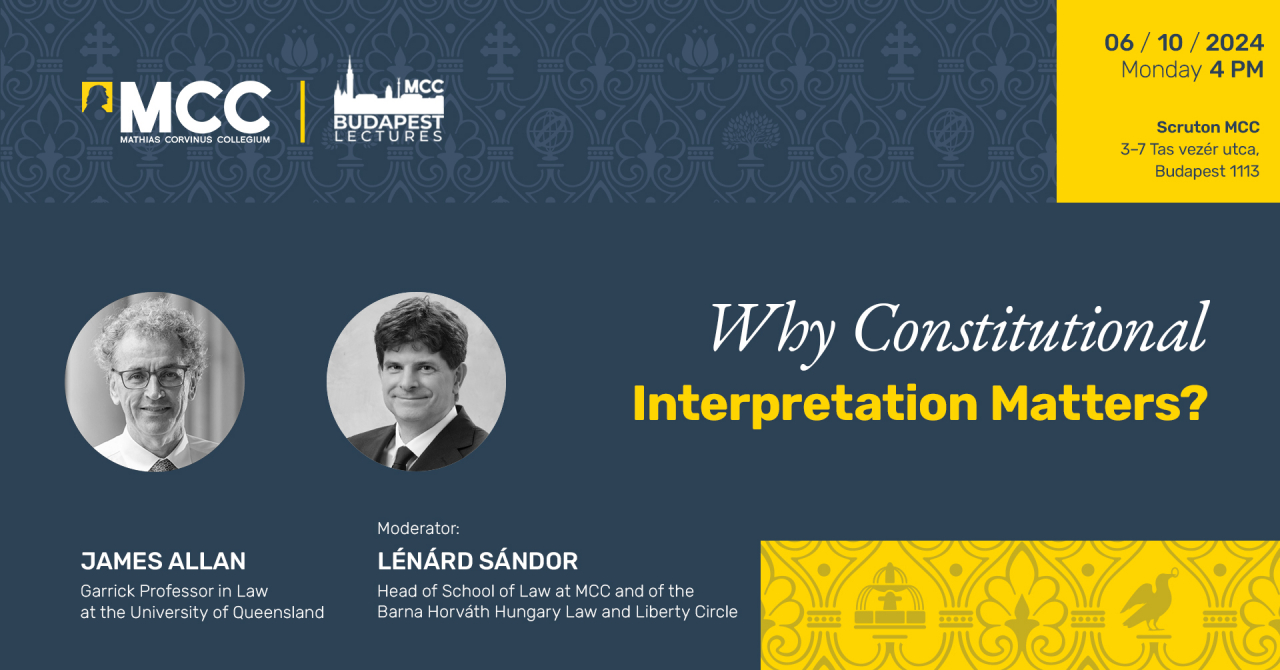Why Constitutional Interpretation Matters?
A constitution is an exceptional legal document that not only contains a governmental arrangement or the fundamental rights and responsibilities, but it also reflects the historical path, widely accepted values, and virtues as well as the common destiny of a certain political community. A constitution therefore embodies a way of life that is unique to a certain political and cultural tradition. Consequently, constitutional interpretation has a significant role in safeguarding the inner cohesion, liberty and independence or sovereignty of a certain political community. But what happens if a certain interpretation aims to evolve or transform what has been agreed in the constitution or if there are rival interpretations? What is the function and what are the limits of constitutional interpretations and what are the major challenges in the 21st century? The next episode of the Budapest Lectures series will explore these questions with James Allan, professor of law at the University of Queensland and author of the “The Age of Foolishness: a Doubter's Guide to Constitutionalism in a Modern Democracy” and Lénárd Sándor, Head of the Law of School at MCC.
James Allan is the Garrick Professor in Law at the University of Queensland, in Australia. He has published in leading constitutional and legal philosophy law journals and writes for The Spectator, Australia, The Australian, Quadrant, Law & Liberty, The National Post, among others. He is the author of the “The Age of Foolishness: a Doubter's Guide to Constitutionalism in a Modern Democracy”.
Lénárd Sándor is the Head of School of Law at MCC and of the Barna Horváth Hungary Law and Liberty Circle. He previously served as a chief counsel at the Constitutional Court of Hungary and as an advisor at the European Parliament in Brussels.
Date: 2024. Június 10. (hétfő) 16:00
Venue: MCC Budapest (Scruton, 1113 Budapest, Tas vezér utca 3-7.)


